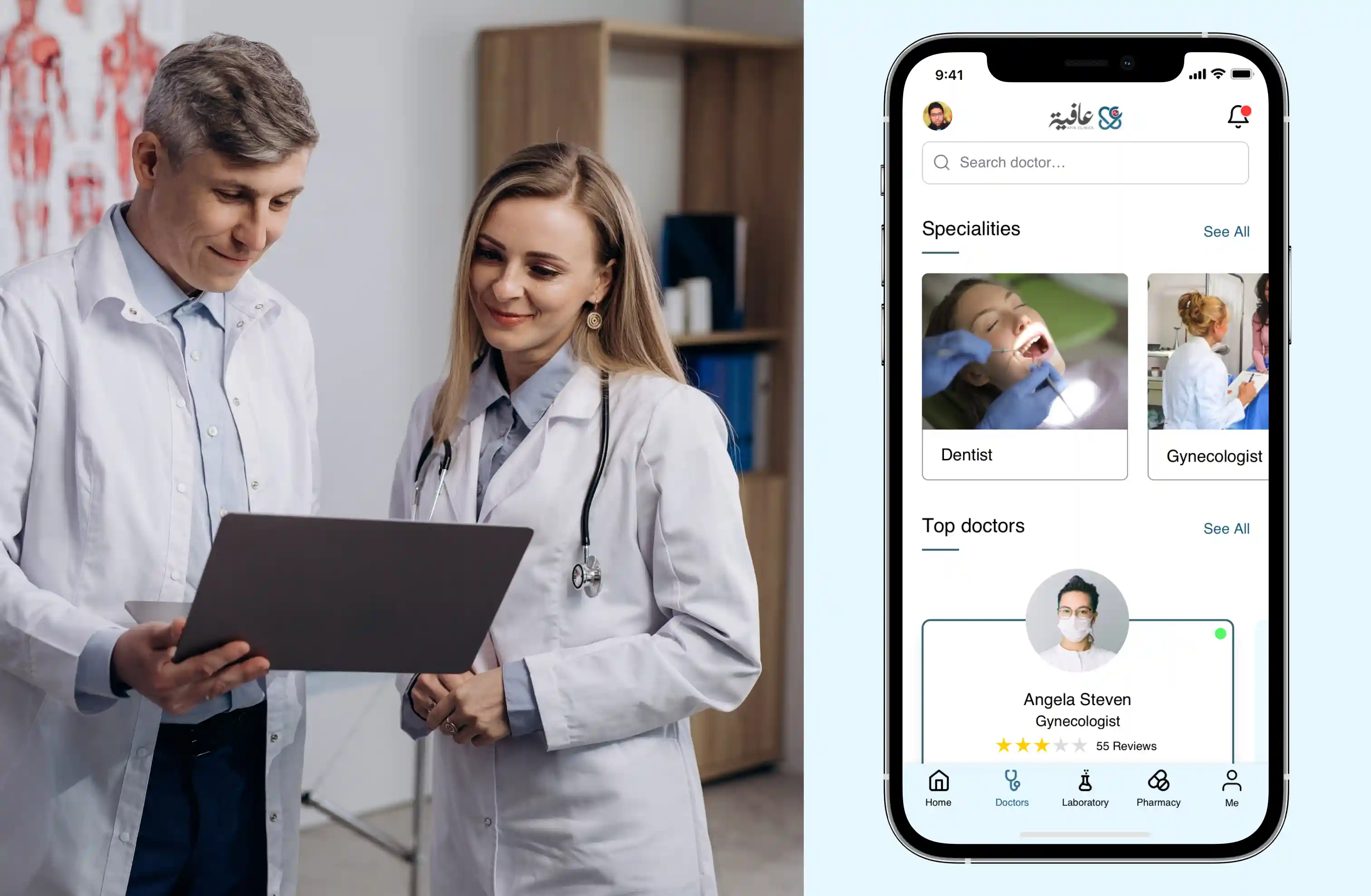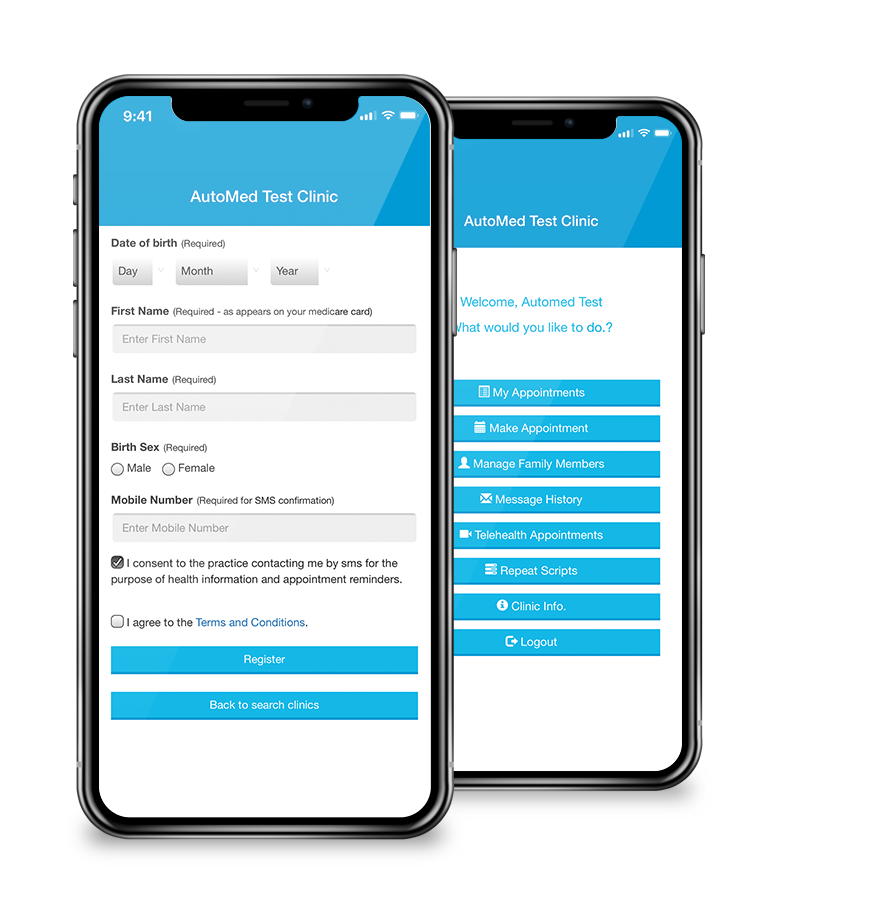Improve Operations: Why Your Clinic Demands a Mobile App for Clinics Now
Wiki Article
The Future of Medical Care: Why Clinics Required a Mobile App Today
As the health care landscape continues to develop, centers deal with installing stress to adapt to individual assumptions for higher benefit and access. The integration of mobile applications can work as an important approach for enhancing client interaction and improving operations. By leveraging modern technology to improve interaction and provide necessary solutions, clinics not only address existing demands however also place themselves for future success. The effects of this change prolong beyond mere operational efficiency; they can redefine patient connections and care delivery in profound methods. What might this makeover appearance like for both clinics and clients?Changing Individual Expectations
As the landscape of healthcare advances, client assumptions are undergoing a considerable change. Today's people are significantly seeking comfort, ease of access, and customized treatment. With the rise of innovation, specifically mobile applications, people currently anticipate a seamless combination of health care services right into their lives. They want the capacity to manage consultations, accessibility clinical documents, and communicate with doctor with their mobile phones, showing a shift in the direction of a more proactive approach to health management.Moreover, individuals are coming to be a lot more educated and empowered, typically investigating problems and therapies on-line before assessments. This enhanced awareness is paired with a need for openness in healthcare processes, including price quotes and therapy alternatives. Consequently, service providers are compelled to adjust by adopting electronic tools that boost the patient experience.
The expectation for timely and efficient communication has actually never ever been higher, with many clients thinking about responsiveness a critical part of high quality care. mobile app for clinics. In this advancing landscape, medical care organizations must recognize these transforming assumptions and leverage mobile applications to promote an extra patient-centric approach, making sure that they not only satisfy yet go beyond the standards set by today's educated consumers
Enhancing Client Engagement

Mobile applications help with communication in between patients and healthcare companies, making it possible for real-time visit scheduling, pointers for medication adherence, and straight messaging functions. These functionalities not just improve ease however additionally build a sense of responsibility among people. Mobile applications can supply instructional material tailored to private needs, assisting people much better recognize their conditions and treatment options.
The combination of gamification aspects within health care applications can likewise motivate patients to take part in healthy actions, strengthening favorable lifestyle modifications. By tracking progress and gratifying success, individuals are most likely to stay committed to their health goals. Eventually, improving patient engagement with mobile applications brings about improved health and wellness outcomes, higher patient satisfaction, and a much more collaborative health care experience. Clinics that prioritize this facet will likely see a significant influence on the high quality of treatment supplied.
Simplifying Clinic Operations
Streamlining center operations is crucial for boosting process efficiency and enhancing individual treatment. The execution of mobile applications can substantially reduce management burdens, allowing doctor to focus a lot more on client interactions. By automating appointment organizing, client check-ins, and invoicing procedures, facilities that site can minimize wait times and improve total functional effectiveness.Mobile apps also facilitate real-time access to patient documents, enabling healthcare professionals to make enlightened choices swiftly. This immediacy not only enhances the quality of treatment however likewise reduces the possibility of errors connected with misplaced or obsoleted details. Leveraging mobile special info innovation supports an extra well organized approach to managing client follow-ups and therapy strategies, making certain that no critical steps are forgotten.
This permits for prompt replenishment and assists avoid interruptions in individual care due to stock shortages. By incorporating these functionalities into their daily operations, facilities can create a more effective and natural atmosphere, eventually leading to improved patient outcomes and contentment.
Improving Communication Networks
Efficient communication is frequently cited as a keystone of high quality health care shipment. In today's hectic clinical atmosphere, mobile applications can dramatically improve communication channels in between facilities, clients, and medical care providers. By incorporating mobile applications into their operations, clinics can promote real-time communications, guaranteeing that individuals obtain prompt information regarding their visits, test results, and treatment plans.Mobile applications also encourage clients to communicate directly with their healthcare teams through safe and secure messaging features. This direct line of interaction fosters a feeling of engagement and enables for immediate clarification of concerns, which can cause better adherence to treatment protocols. Press alerts can remind clients of upcoming visits or drug timetables, lowering no-show prices and improving total health end results.

Remaining Competitive in Healthcare
In a swiftly evolving medical care landscape, companies have to prioritize innovation and versatility to maintain an one-upmanship. The combination of mobile applications right into health care solutions is no longer optional; it is crucial for clinics intending to improve patient engagement, simplify procedures, and enhance general service shipment.As clients progressively rely upon digital my sources systems for health and wellness monitoring, facilities that stop working to adopt mobile technology threat falling behind. A well-designed mobile application can offer functions such as appointment scheduling, telemedicine examinations, and accessibility to clinical records, providing patients with convenience and fostering loyalty.

Competitors are additionally buying mobile services, so remaining in advance calls for continuous renovation and staying educated concerning technological advancements. Centers need to not just execute mobile applications but likewise participate in normal updates and refinements. Inevitably, the successful assimilation of mobile modern technology will certainly distinguish forward-thinking health care companies and set the benchmark for patient-centric treatment in a digital globe.
Final Thought
In conclusion, the assimilation of mobile applications in centers is critical to resolve the developing landscape of individual assumptions. Inevitably, the critical application of mobile applications represents a vital action towards delivering available and personalized healthcare, therefore satisfying the demands of today's equipped individuals.Ultimately, boosting individual involvement via mobile applications leads to boosted health end results, higher patient fulfillment, and a much more collective medical care experience.Mobile applications additionally help with real-time accessibility to patient records, making it possible for healthcare specialists to make informed choices rapidly. In today's fast-paced clinical setting, mobile applications can considerably boost communication networks between facilities, individuals, and health care companies.Mobile apps likewise empower clients to connect directly with their medical care groups through protected messaging functions. Eventually, the calculated implementation of mobile apps stands for an important action towards supplying tailored and easily accessible healthcare, thus fulfilling the demands of today's equipped individuals.
Report this wiki page